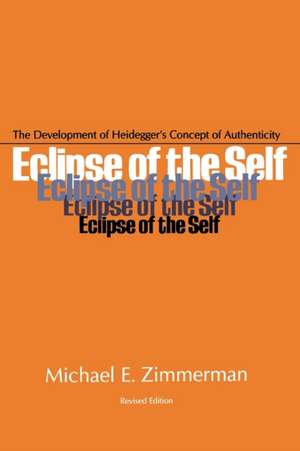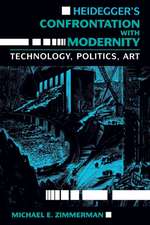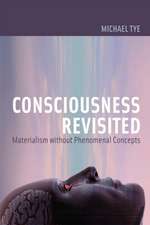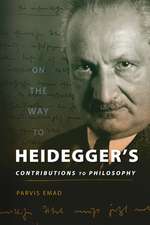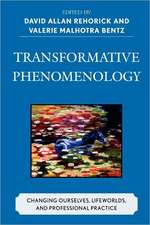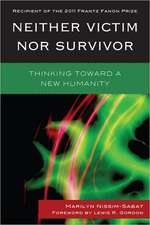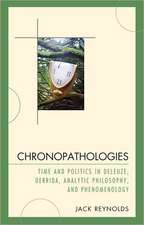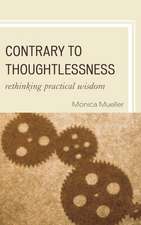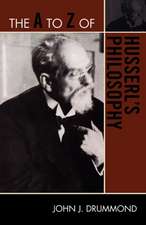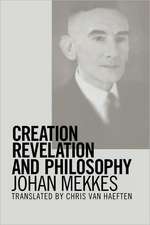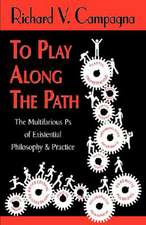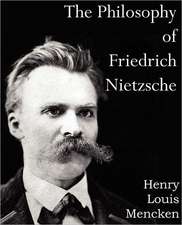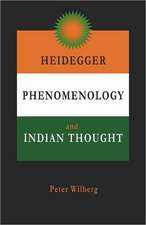Eclipse of the Self: The Development of Heidegger’s Concept of Authenticity
Autor Michael E. Zimmermanen Limba Engleză Paperback – 31 dec 1985
Although it is sometimes said that Martin Heidegger’s later philosophy no longer concerned itself with the theme of authenticity so crucial to Being and Time (1927), this book argues that his interest in authenticity was always strong.
After leaving the seminary to become a philosophy student, Heidegger began to “de–mythologize” religious themes for his own philosophical purposes. Like the Christian notion of faith, Heidegger’s notion of authenticity involves relinquishing the egotistical self–understanding which blocks our openness for possibilities. Yet authenticity as “resoluteness” includes an element of voluntarism foreign to the idea of faith. Heidegger’s brief engagement with National Socialism (1933–1934) helped him to re–think the Nietzschean concept of will which had influenced his early views on authenticity. Although part of the meaning of resoluteness is to allow things to be revealed, it also suggests that an individual can somehow will to be authentic. After about 1936, Heidegger emphasized that an individual can only be released from egoism (inauthenticity) by a power which transcends him. The abiding theological issue concerning the efficacy of works as against the saving power of grace finds expression in the distinction between resoluteness and releasement.
After leaving the seminary to become a philosophy student, Heidegger began to “de–mythologize” religious themes for his own philosophical purposes. Like the Christian notion of faith, Heidegger’s notion of authenticity involves relinquishing the egotistical self–understanding which blocks our openness for possibilities. Yet authenticity as “resoluteness” includes an element of voluntarism foreign to the idea of faith. Heidegger’s brief engagement with National Socialism (1933–1934) helped him to re–think the Nietzschean concept of will which had influenced his early views on authenticity. Although part of the meaning of resoluteness is to allow things to be revealed, it also suggests that an individual can somehow will to be authentic. After about 1936, Heidegger emphasized that an individual can only be released from egoism (inauthenticity) by a power which transcends him. The abiding theological issue concerning the efficacy of works as against the saving power of grace finds expression in the distinction between resoluteness and releasement.
Preț: 282.32 lei
Nou
Puncte Express: 423
Preț estimativ în valută:
54.03€ • 58.67$ • 45.38£
54.03€ • 58.67$ • 45.38£
Carte tipărită la comandă
Livrare economică 22 aprilie-06 mai
Preluare comenzi: 021 569.72.76
Specificații
ISBN-13: 9780821406014
ISBN-10: 0821406019
Pagini: 357
Dimensiuni: 152 x 229 x 25 mm
Greutate: 0.58 kg
Ediția:2
Editura: Ohio University Press
Colecția Ohio University Press
ISBN-10: 0821406019
Pagini: 357
Dimensiuni: 152 x 229 x 25 mm
Greutate: 0.58 kg
Ediția:2
Editura: Ohio University Press
Colecția Ohio University Press
Recenzii
“Michael Zimmerman’s Eclipse of the Self is a Heidegger study that is remarkable for its strong scholarly foundations, its newness of approach, and—thanks to exceptional clarity of style—its accessibility to a broad reading public.”—Michael Haar, Maire–Assistant, Université de Paris–Sorbonne
“Zimmerman’s book… certainly offers an indispensable point of departure for anyone wishing to study the role of authenticity, resp. inauthenticity, in Heidegger’s thought; it is to be recommended on account of erudition and eminent
“This book deserves praise for its challenging presentation of Heidegger’s ideas, and because it is a thoughtful and independent contribution to that larger dialogue”—David A. Kolb, Bates College, Canadian Philosophical Reviews
Notă biografică
Michael Zimmerman is professor of philosophy at Newcomb College of Tulane University. He was granted the Mortar Board Award for teaching excellence in May 1979. He is the author of many articles on Heidegger.
Descriere
Although it is sometimes said that Martin Heidegger’s later philosophy no longer concerned itself with the theme of authenticity so crucial to Being and Time (1927), this book argues that his interest in authenticity was always strong.After
